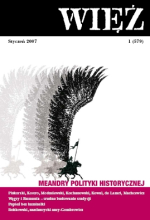Some Lexical, Morphological and Syntactical Similarities and Differencies in Lithuanian, Italian and English Languages
Some Lexical, Morphological and Syntactical Similarities and Differencies in Lithuanian, Italian and English Languages
Keywords: morphemes; inflections; suffixes; prefixes; English; Italian; Lithuanian; similarities; differences
The article is aimed at facilitating parallel teaching and learning Italian by discovering lexical, morphological and syntactical similarities and differences in Lithuanian, Italian and English languages, which correspondingly represent Romance, Germanic and Baltic language branches of the Indo-European language family. Even though the English language is relatively young, having developed in the Middle Ages, it inherited a lot of morphemes and derivatives from Ancient Greek and Latin through Italian which are also rather common in other languages. While analysing the morphemes, the methods of comparative linguistics and contrastive analysis are applied. The major semantic groups of suffixes and prefixes along with their functions are compared in the three languages and are listed with typical examples of their use. Concerning inflectional and derivational morphemes in different parts of speech, grammatical categories such as voice, tense, person, gender and number are also discussed. Taking into consideration that Lithuanian is rather different from other languages, more attention is drawn to common similarities between Italian and English. Some lexical examples of correct and incorrect usage are advanced. In order to illustrate the issues related to interference of the mother tongue, syntactical correlation is also provided. This paper brings to light multidimensional profiles of the subject and suggests a new approach to teaching and learning foreign languages. The comparative analysis is mostly based on the survey of the corresponding scientific literature and dictionaries.
More...
